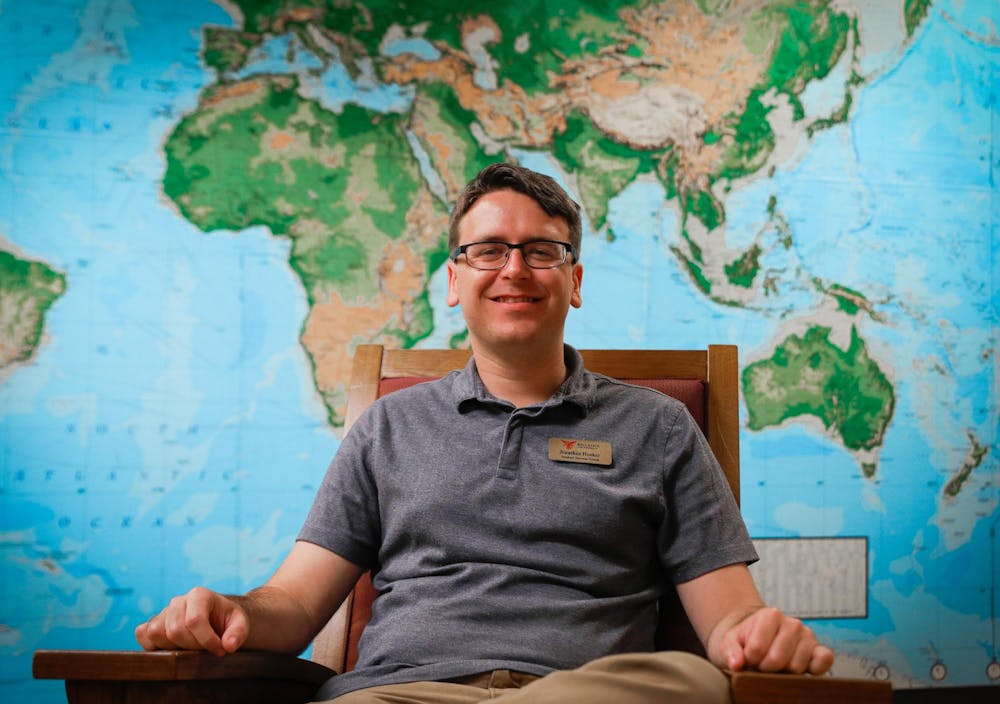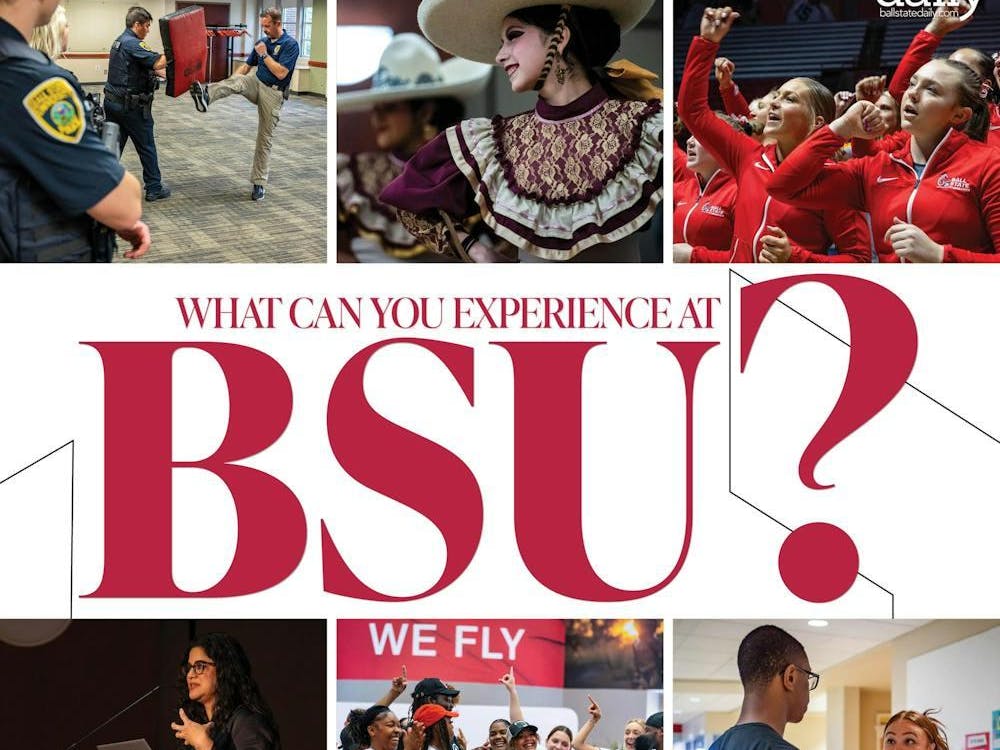Editors note: This story has been updated to correct information provided in a quote by Shane Lanning.
Ball State University’s new Benny Buddies initiative addresses a critical issue on college campuses: international students struggle to find a sense of belonging.
Led by Jonathan Hooker, international student success coach at the Rinker Center for Global Affairs, the program aims to bridge cultural gaps by pairing international students with domestic students, fostering meaningful connections that go beyond the classroom.
“Many international students come here knowing very few people, if any,” said Shane Lanning, director of international student success at the Rinker Center. “They’re trying to adjust to a new academic system, a new culture and even a new way of living. Benny Buddies is about addressing that [sense of] isolation and helping them connect with others on campus.”
For international students like Fatma Badie, a first-year graduate student from Egypt majoring in environmental science, Benny Buddies provides an essential opportunity for connection.
“I came here with basically no one,” Badie said. “I wanted to join something that would provide me with a circle of support, people I could form friendships with.”
The Benny Buddies program provides a structured way for students to develop friendships through shared experiences and cultural exchange. Hooker, who has experience with similar initiatives, felt compelled to revive the concept at Ball State after learning the university’s previous program had been discontinued during the COVID-19 pandemic.
He recognized how crucial it is to create opportunities for international students to feel supported in their new environment.
“These students come from all over the world, and many face homesickness, culture shock and even loneliness,” Hooker said. “Programs like Benny Buddies give them a community where they can feel more connected and understood.”
Badie said she hopes to better understand American culture beyond just making friends.
“I wanted to see if I can learn more about American culture through my friends in Benny Buddies, but I also want to represent my own culture,” she said. “ I’m a hijabi, I’m Muslim and I’m from the Middle East. I want people to ask me questions and get to know my culture, so I can help humanize the image of Muslims and Arabs.”
Lanning highlighted the broader implications of failing to address the integration of international students on campus.
“If international students don’t feel supported or included, it can affect their academic performance, mental health and overall experience at the university,” he said. “We’re not just talking about having fun social events; we’re talking about creating a support system that directly impacts students’ success.”

The program’s Sept. 17 launch began with a multicultural speed-friending event, a way for participants to break the ice and meet potential partners. The goal was to encourage long-lasting relationships by matching students based on their interests, backgrounds or academic paths.
The buddy pairs were then encouraged to meet regularly and attend group events such as scavenger hunts, cooking competitions and game nights.
“What we want to do is create a flexible, fun atmosphere where students feel comfortable sharing their experiences,” Hooker said. “When international and domestic students interact, they start to see the world from each other’s perspectives, which can change the way they approach not just their friendships, but their entire college experience.”
Badie added that these interactions also help her navigate life in Muncie.
“There are things that domestic students know, things you won’t find on a webpage. Having a friend here who can help me…makes a huge difference,” she said.
While international students often struggle with finding a community, Hooker and Lanning pointed out that American students also stand to gain from these interactions.
“Our jobs are getting more globally connected,” Lanning said. “So much of our future workforce will involve working with colleagues from all over the world. The skills students develop through programs like this — communication across cultures, empathy, understanding — are going to be essential.”
Lanning also said that international students now comprise “nearly 2.8 percent” of Ball State’s student body.
“These are students who bring so much diversity and richness to our campus community,” Lanning said. “It’s essential that we make sure they feel included, supported and valued. That benefits everyone.”
Hooker echoed these sentiments, adding that fostering cross-cultural friendships is key to creating an inclusive campus environment.
“When you bring people from different backgrounds together, they begin to challenge stereotypes and build real understanding,” he said. “We’re hoping that Benny Buddies will do just that.”
Both Hooker and Lanning stressed that while Benny Buddies is a social program, its impact can go much deeper. By helping students form meaningful relationships, the initiative aims to address some of the broader systemic challenges international students face, including feelings of alienation and the difficulty of navigating a new cultural landscape.
“The connections students make in college can last a lifetime,” Hooker said. “This is about more than just getting through the semester, it’s about building a community where everyone feels they belong.”
For Badie, participating in the program early in her academic journey is especially beneficial.
“I’ve just moved here two months ago, and as a first-year PhD student, I’m not overwhelmed with coursework yet,” she said. “This is the perfect time for me to get involved, build friendships, and have a sense of community that will carry me through when my studies become more intense.”
Students interested in joining Benny Buddies can sign up through the Rinker Center’s social media pages or by contacting Hooker via email jonathan.hooker@bsu.edu or phone 765-285-2161.
As the program continues to grow, Hooker hopes it will serve as a model for how universities can better integrate and support their international student populations.
“College is a time for expanding your horizons,” Hooker said. “Benny Buddies is just one way we’re trying to make sure that happens for every student, no matter where they come from.”
Contact Meghan Braddy via email at meghan.braddy@bsu.edu or on X @meghan_braddy





